The Ice Prince Ghanaian affair
When he comes into this Accra studio, Ice Prince is smiling but the entourage trailing him is stone-faced.
 Ice Prince: Every time I’m in Ghana, I pray a different type of prayer.
Ice Prince: Every time I’m in Ghana, I pray a different type of prayer.
The famous Nigerian rapper is really in town for his friend Oluwatobi Sanni-Daniels’ wedding to singer Becca, but has stopped by briefly.
He hurriedly taps palms in greeting and heads straight to his weapon of choice—a microphone. He props it up to his face and, standing, dives into rabid freestyles of hooks and verses that constitute some of the most familiar in this city and across the continent.
The contingent that arrives with him takes their positions around the studio. “Bola Ray na im get this place,” he says to one of the boys. He gets an impressed nod in response. Ice Prince is home when he’s in Accra. When his chorus on 'Particula', the Major Lazer/ DJ Maphorisa monster, begins to play, he alters a single word in it, much to the delight of his listeners:
“I love Accra in particular,” he bellows, flailing gun signs at, well, nobody in particular.
Ice Prince (Panshak Zamani), the author of five solo projects, first attracted attention in Ghana via 2010's 'Oleku'. The record, featuring his former label mate Brymo and produced by his creative sibling and regular collaborator Jesse Jagz remains his most influential offering—having been remixed multiple times by several artists, including rap great Sarkodie. It is frequently cited as one of the songs that heralded contemporary Afropop.
“So many songs contributed to the Afropop genre or Afrobeats,” he explains to me when I pull him aside for a quick sit down. “That 'Oleku' is one of those songs is an honour. That makes it a classic, right?” To me, the question is rhetorical, and I react with nothing beyond a smile. That joint is a classic, and I call bs on anyone saying otherwise—even if that person is Ice Prince.
He is an influencer in both the Afropop and Afro hip hop genres, because he has also made superlative rap songs which have earned him international props (see 'Shots on Shots' with Sarkodie and 'N Word remix' with AKA and 'Me Versus Me'). The cartel that has succeeded at being relevant by making dance-ready songs, as well as inflammable 16-bar rap verses, is close-knit: Sarkodie, Olamide, Cassper, AKA, Nasty C, MI Abaga and a few others—the top tier, in other words.
"Staying relevant in Afropop and in Afro hip-hop takes a lot of hard work and an artist truly sacrificing himself…and I do sacrifice myself," he says. "I spend more time in the studio than on TV or in the club. Hard work always breeds results.”
The reason an Ice Prince record usually stands out is that it is never one thing—it retains melody as effectively as it carries witty rap lines, it might layer a party pulse over sobering church piano. On one joint, there could be reggae-dancehall, highlife, hip-hop and Afropop, but in a way that is interesting rather than confounding. He's both Captain Hook and Rap Maestro.
Ice Prince began his socialisation in music at the temple by singing tenor in the choir. The experience taught him so much about the dynamics of putting music together. So he’s one of a handful who effortlessly flits between a multiplicity of feels.
His creative effort also reveals itself in fashion, which is often an avenue for further expression by many a musician. Ice Prince’s most notable style contribution to African hip-hop culture is, perhaps, his finesse at normalising drastic amalgamations: such as complementing his Agbada with sneakers or throwing on a bam cap to even things out. Acknowledging the various stylists and “idea people” he’s partnered over the years, the rapper references left-of-center logic as often being his winning module: “sometimes, its just thinking outside the box—thinking weird a bit.”
Recently, Ice Prince courted unlikely attention. He called for the merger of Ghana and Nigeria as one nation. “Dear AU (aka African Union),” he tweeted on 18 August, “Pls Take My Ad-Vice: Its time to make NIGeria and Ghana One Country Fa Real!!!!!! I suggest the 'Federal Republic of NigGha.’”
Maybe that tweet was published in jest, but it underscores a desire for partnership between the West African countries. Collaboration is the way, and having curated some of the biggest musical alliances across Africa, Ice Prince knows a thing or two about their merits. “It's very very important for us to come together as a continent. Africa is the future, but we just can only make that future actualize if we literally come together.”
When we tell the Ice Prince story, it is impossible to overlook the Choc Boiz era. Even if as a solo act Mister Zamani has charted a solid legacy for himself, his place as one-third of Choc Boiz—the rap mafia which also has as founding members, Jesse Jagz and MI Abaga—is indelible. At the time, especially in their native Nigeria, these boys from Jos boys were often in top-five lists. Today, the collective which he helped establish, has morphed into a massive movement—the Choc Boi Nation, which now also counts DJ Lambo, Nosa, Koker, Dice Ailes, Loose Kaynon and others as members.
Ice Prince regularly calls MI “big bro” and mentor, yet an outsider will notice the creative bond between him and Jesse Jagz—who produced a bulk of the songs on Ice Prince's debut Everybody Loves Ice Prince.
Ice Prince’s preamble to his telepathy with Jesse Jagz consists of an uneasy pause, chuckle, and an admission of mild unease that MI would not take kindly with him citing Jesse Jagz as his tighter brother. “You see, me and Jagz are closer. MI is like our big bro—and you know how big bros do it—they just like to be big bros. I and Jagz have spent more time in the studio than [I have] with MI.” So impactful has Jagz been to his artistry that, when he’s in the studio with another producer, Jesse is present, he admits, for he frequently finds himself pondering: what would Jagz do?
“I always think about how Jagz would have done it—because I actually first saw production from Jesse Jagz—so, subconsciously, when I’m working with artists, I always—he has a lot of shortcuts when he’s producing, you know what I mean and yeah—he’s steady influential in my life, generally."
As far as first albums go, Ice Prince dispatched a highly successful piece. Realistically, no other project of his has quite invoked as much rumble as, Everybody Loves Ice Prince. When I ask if he admits that he has yet to top ELI, or where it ranks among his submissions, he assumes the specific diplomacy that artists often assume.
“I wouldn’t be able to answer that question myself. I’d rather let my people or my fans tell me the answer to that because this is my music and every album I do—or every record I do—I put so much in it that it’s hard for me to pick one as a favorite and leave the other one. I put as much effort to all of them and they all come from different places, different inspirations, different vibes. So it’s hard to put Everybody Loves Ice Prince over Jos to the World, or Fire of Zamani. They all come from different places and represent different things.”
To truly conquer Africa, one has to be anointed by Ghana. I won’t go into the intricacies right now—if you know, you know—and Ice Prince surely knows this.
“Ghana is such a huge territory—it’s an important part of Africa. From the very beginning of my career—being the release of 'Oleku'—Sarkodie happened to be one of the artists that blew that song up for me,” he says, snapping his fingers. More praise-singing follows: “All the Ghanaian girls I’ve hung out with are the best that I’ve ever had. Every time I’m in Ghana, I pray a different type of prayer—and it goes straight to God’s ears.”
Ice Prince now also occupies a unique position—as a nexus between a DBanj or a 2Baba and a Mayorkun or Kuami Eugene. “I learn from everybody. Old and the new. Now, I hate to use that word ‘old’—I don’t want to categorize anybody as ‘new’ or ‘old’. The young ones bring fresh ideas, they bring new sounds, they bring new vibes. The older guys, they teach you how to make money, they teach you how to bring up the younger ones, so you catch different inspirations and you learn different things from different groups.”
My parting question in this conversation pertains to 'You Rappers Should Fix Up Your Lives', MI’s controversial 2017 song, which calls out rappers for sleeping at the post.
“'Fix Up Your Lives' was a statement that I think was necessary to be said. Somebody needed to say that to our side of the hip hop genre—and who else to say that kind of a statement than the boss himself. MI, I think, was the perfect person to make that statement. It woke a lot of people up—including me. That record definitely sparked a fire in me and I’m sure it sparked a fire in a lot of hip hop artists and rappers back home and around the world.”
Our conversation over, Ice Prince settles properly in the couch, and throws up more hip-hop hand signs as cameras click one final time.
A version of this article first appeared on the eNewsGH website







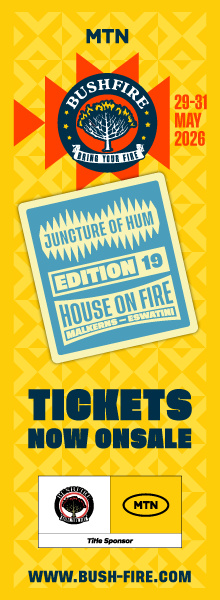




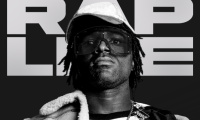











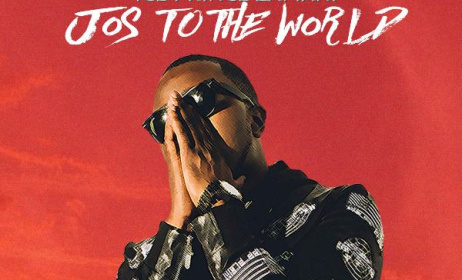

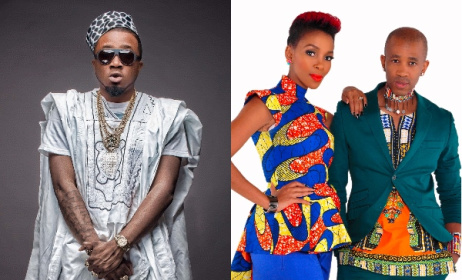
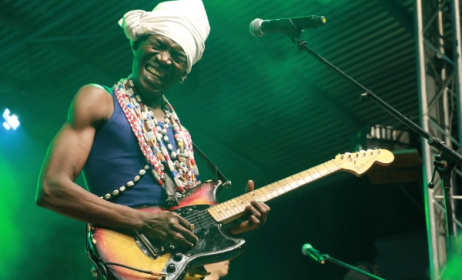

Comments
Log in or register to post comments